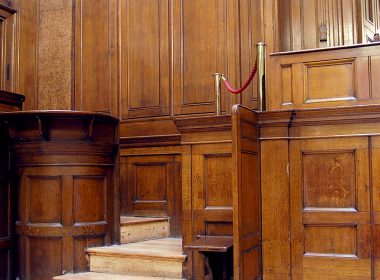Key decisions
- Asden Developments Pty Ltd (in liq) v Dinoris [2017] FCAFC 117
- Putland v Royans Wagga Pty Ltd [2017] FCA 910
- Sklavos v Australian College of Dermatologists [2017] FCAFC 128
Corporations / Practice and Procedure
Recusal application on the eve of a trial regarding whether liquidator breached s 180 of the Corporations Act 2001 (Cth)
In Asden Developments Pty Ltd (in liq) v Dinoris [2017] FCAFC 117 (10 August 2017) the Full Federal Court dismissed an appeal from the primary judge’s dismissal of the proceeding. At first instance the primary judge held that a liquidator (Mr Dinoris) breached his duty as the liquidator of the appellant company and made a finding of contravention of s 180(1) of the Corporations Act 2001 (Cth) (‘the Act’) against him. However, the primary judge did not award compensation under s 1317H of the Act on the basis that the company had not established that any damage had resulted from the contravention. The Full Court also dismissed a cross-appeal against the findings made against Mr Dinoris.
One of the appellant’s grounds of appeal was that the primary judge should have recused himself for apprehended bias (at [35]-[51]). The basis of this ground were comments made by the primary judge at a pre-trial management hearing a few days before the trial commenced. The primary judge dismissed the recusal application that was made at the commencement of the trial. The Full Court (Greenwood, Davies and Markovic JJ) found no error by the primary judge in doing so.
Among other reasons, the Full Court stated that it would be wrong to have regard to the final reasons for judgment in the proceeding in determining whether the comments at the pre-trial case management conference gave rise to an apprehension of bias (at [48]). Their Honours cited and relied upon the following observations of the High Court in Michael Wilson & Partners Ltd v Nicholls (2011) 244 CLR 427 at [67]:
‘As pointed out earlier in these reasons, an allegation of apprehended bias requires an objective assessment of the connection between the facts and circumstances said to give rise to the apprehension and the asserted conclusion that the judge might not bring an impartial mind to bear upon the issues that are to be decided. An allegation of apprehended bias does not direct attention to, or permit consideration of, whether the judge had in fact prejudged an issue. To ask whether the reasons for judgment delivered after trial of the action somehow confirm, enhance or diminish the existence of a reasonable apprehension of bias runs at least a serious risk of inverting the proper order of inquiry (by first assuming the existence of a reasonable apprehension). Inquiring whether there has been “the crystallisation of that apprehension in a demonstration of actual prejudgment” impermissibly confuses the different inquiries that the two different allegations (actual bias and apprehended bias) require to be made. And, no less fundamentally, an inquiry of either kind moves perilously close to the fallacious argument that because one side lost the litigation the judge was biased, or the equally fallacious argument that making some appealable error, whether by not dealing with all of the losing side’s arguments or otherwise, demonstrates prejudgment’. (footnotes omitted)




